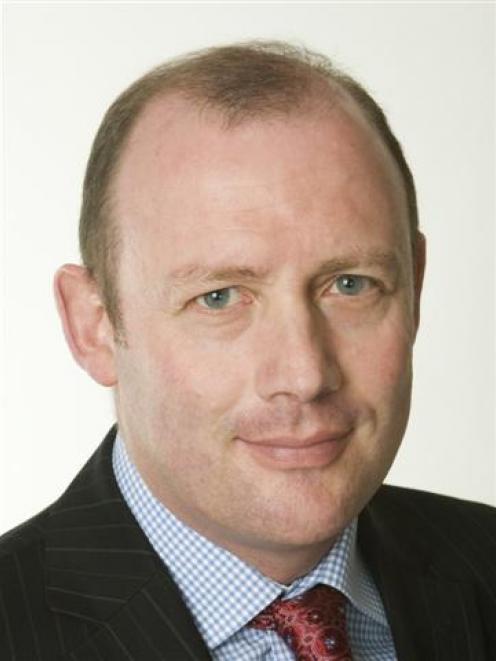
While listed Heartland, which is readying itself to apply for a banking licence later this year, gets to expand and consolidate its target rural lending portfolio, the sale rids PGG-Wrightson (PGG-W) of some debt and puts it on better banking terms to concentrate on boosting grassroots operations.
The deal, which is a conditional sale agreement requiring both PGG-W and Heartland shareholder approval, appears set to prompt some overdue investment and expansion into PGG-W's remaining core business of supplying rural services, through its existing 98 outlets around the country.
Shares in Heartland, which is due to go into the NZX top 50 companies index shortly, rose almost 2.8% to trade at 74c after the announcement.
Heartland was formed in January after the $2.2 billion merger of the Canterbury Building Society, Marac Finance and Southern Cross Building Society, with the proposed purchase boosting its asset base to about $2.6 billion.
Heartland New Zealand chief executive Jeff Greenslade said when contacted yesterday the PGG-W Finance purchase, which includes 38 staff crossing to Heartland, would boost its rural lending from about 6% of its book to about 21%, and take it closer to its target clients in providing rural "seasonal financing".
A large slice of the minimum $55 million Heartland wants from capital raising, overseen by Craigs Investment Partners, includes PGG-W buying $10 million worth of shares at 75c each. Under the deal, PGG-W would continue to offer financial services to its farmers through a licensing agreement with Heartland; which earned it a commission.
Mr Greenslade wants Heartland focused more on lending working capital for purchases of livestock, dairy herds or plant and equipment, as opposed to land-based lending.
Part of the deal includes PGG-W retaining about $95 million in "certain loans", which will be placed in a subsidiary to be collected over a two-year period, according to PGG-W chairman Sir John Anderson.
In an interview, Sir John said the $95 million consisted of 25% of loans to two customers with their respective farms at present on the market, with the balance of smaller $2 million-$3 million loans, which would be capitalised and collected over the next 12-24 months.
Industry sources have questioned to what extent there may be "bad loans" wrapped up in the $95 million tranche, but Sir John was confident of collecting the loans.
Forsyth Barr broker Peter Young said the purchase for Heartland "gives them a good footing into this market".
"The deal, although somewhat convoluted, looks to have some reasonable protection for Heartland from the impaired PGG-W Finance loans currently on its books," he said of the $95 million retained by PGG-W.
PGG-W secured debt holders would become unsecured debt holders under Heartland, but the reality was the ranking did not alter as there were no secured debt holders at present ranking above them.
Sir John said Heartland did not want the $95 million tranche of loans as it would affect the company's capital ratio requirements (regulatory imposed higher levels of cash which banks must keep on hand) when it applied to become a bank.
In the wake of the global financial crisis, regulatory reform worldwide is imposing higher capital ratio holdings on all banks.
Mr Greenslade was not concerned about the effects of Heartland having to factor in a higher ratio for itself, as it was already subject to higher levels of risk weighting than banks.
He hoped banks would either decide to exit the sector which Heartland was targeting, or be forced to raise their own rural interest rates.
He maintained 100% of funding would be domestic and Heartland would not be going to offshore markets.
Sir John said the sale would "significantly deleverage and de-risk PGG Wrightson's current financial position", assist to pay parent company debt and was part of the strategy to introduce a dividend payment policy for shareholders in the medium term.
The removal of the finance arm from PGG-W meant a positive change to its capital ratio required by PGG-W's banking syndicate, for which it was at present negotiating new terms, he said.
"The rural services [division] has not had the attention it's needed over the past five years ... more working capital is required. We want to invest in it; for growth to quality earnings."
Sir John said the deal was supported by majority shareholder Agria Singapore, which was not providing cash towards rural services expansion.
DEAL AT A GLANCE
• PGG-W finance division book: Worth up to $430 million.
• Heartland New Zealand: Bought for about $100 million.
• Heartland: Capital raising minimum $55 million.
• PGG-W: Buying $10 million Heartland shares.
• PGG-W: Retains $95 million unwanted loans.
• Heartland: Asset base up from $2.2 billion to $2.6 billion.
• Heartland: Rural loan book increases from 6% to 21%.

